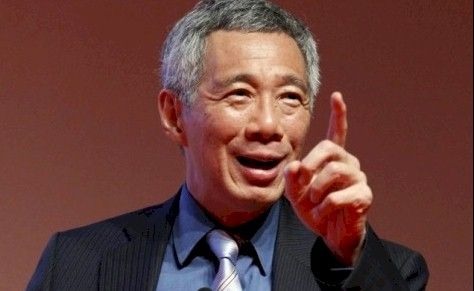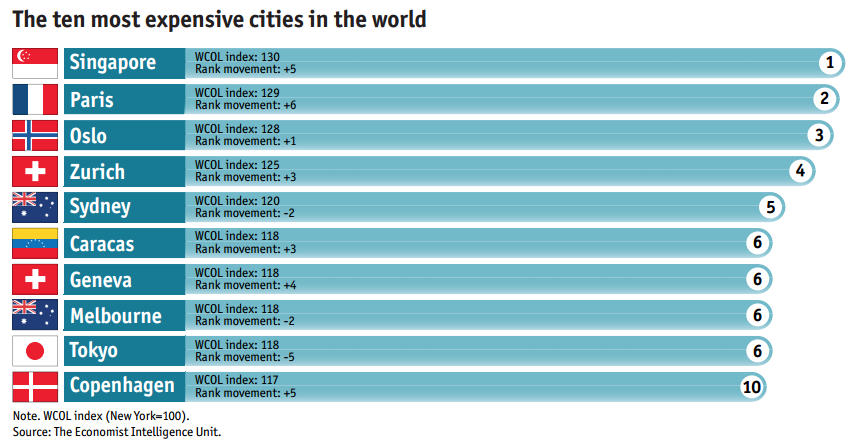- Joined
- Jul 24, 2008
- Messages
- 33,627
- Points
- 0
[h=2]Even well-to-do SGs may not have enough retirement savings[/h]

 August 15th, 2014 |
August 15th, 2014 |
 Author: Editorial
Author: Editorial
 According to a DBS survey last month, even the well-to-do Singaporeans may also not have enough savings to see them through retirement.
According to a DBS survey last month, even the well-to-do Singaporeans may also not have enough savings to see them through retirement.
The survey had revealed that the amount of money an emerging affluent (EA) Singaporean intends to set aside for retirement will in fact, only last him for about 13 years.
This is based on their expected expenditure after they leave the workforce.
The survey showed that 73% of the EAs plan to retire between 55 and 65 years old. Also, on average, they will have a savings of $571,715.
More than 85% said they expect to live on a retirement income of $3,500 per month for the next 15 to 20 years or more.
However, that means their retirement fund will only last them about 13 years, on average. This falls short of the average life expectancy in Singapore. For those born in the 1980s, the average life expectancy is 70 to 75 years, while those born in the 2000s will have a life expectancy of 80 to 84 years.
DBS defines EAs in two categories:
The survey also found that “established” EAs – defined by the bank as those aged 35 to 49, single and working – allocate most of their incomes towards investment and savings. This segment set aside 51 per cent of their income, compared to the “family focused” – aged 25 to 62, married and working or not working – who placed the least at 43 per cent. A significant portion of the latter group’s income goes to loans, DBS said.
Some have chosen to retire outside of Singapore where the cost of living is lower, for example, JB.
Singapore most expensive place to live

Last month, according to the Worldwide Cost of Living 2014 report compiled by the Economist Intelligence Unit (EIU), Singapore is ranked the most expensive place to live on the planet.
The report collected data from 131 cities around the world, factoring in the price of food and drink, domestic and personal items, clothing, housing and rent, and bills, among other costs.

Who did you Stinkees vote for? *hee*hee*


The survey had revealed that the amount of money an emerging affluent (EA) Singaporean intends to set aside for retirement will in fact, only last him for about 13 years.
This is based on their expected expenditure after they leave the workforce.
The survey showed that 73% of the EAs plan to retire between 55 and 65 years old. Also, on average, they will have a savings of $571,715.
More than 85% said they expect to live on a retirement income of $3,500 per month for the next 15 to 20 years or more.
However, that means their retirement fund will only last them about 13 years, on average. This falls short of the average life expectancy in Singapore. For those born in the 1980s, the average life expectancy is 70 to 75 years, while those born in the 2000s will have a life expectancy of 80 to 84 years.
DBS defines EAs in two categories:
- Adults aged 18 to 29 with a personal monthly income of more than $2,500
- Adults aged 30 to 59 with a personal monthly income of more than $5,000
The survey also found that “established” EAs – defined by the bank as those aged 35 to 49, single and working – allocate most of their incomes towards investment and savings. This segment set aside 51 per cent of their income, compared to the “family focused” – aged 25 to 62, married and working or not working – who placed the least at 43 per cent. A significant portion of the latter group’s income goes to loans, DBS said.
Some have chosen to retire outside of Singapore where the cost of living is lower, for example, JB.
Singapore most expensive place to live

Last month, according to the Worldwide Cost of Living 2014 report compiled by the Economist Intelligence Unit (EIU), Singapore is ranked the most expensive place to live on the planet.
The report collected data from 131 cities around the world, factoring in the price of food and drink, domestic and personal items, clothing, housing and rent, and bills, among other costs.

Who did you Stinkees vote for? *hee*hee*


